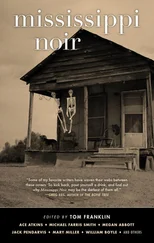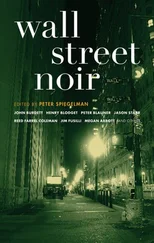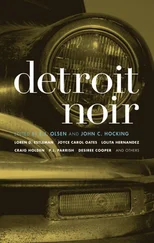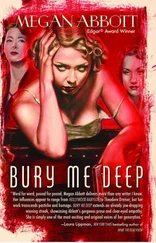Behind her, the coffee table was overturned and a rug askew. There was a sharp smell of vomit.
“What happened?” Deenie said, her voice high. “Where’s Lise?”
The car keys seemed to spring from the woman’s hands, clattered onto the cement porch. They both bent down to grab them. Deenie could hear the woman’s hard, hurried breaths. She grabbed the keys from Deenie’s hands and inhaled deeply.
“Sweetie,” she said, hands on Deenie’s shoulders like she was seven, “go back to school, okay?”
Before Deenie could say what she wanted to— Can I come too? I need to come too —the woman was running down the steps and to her car, its door hanging open.
Deenie looked back into the living room. A slick of vomit, a torn latex glove. Imagined Lise lying there, head knocking against the floor.
Lise on the classroom floor, eyes black.
Deenie now feeling her own knees shaking, like she hadn’t eaten anything. The sense, again, of a bigness to the day that was more than she could ever want.
Lise.
You spend a long time waiting for life to start—the past year or two filled with all these firsts, everything new and terrifying and significant—and then it does start and you realize it isn’t what you’d expected, or asked for.
Standing in front of his students, even with his butane lighters on, Tom couldn’t get anyone’s attention, not even Nat Dubow’s, who loved to demonstrate every day how much he knew, who shot videos of himself doing chemistry experiments in a laboratory in his parents’ garage and then posted the videos on the web under the name Nat Du-Wow. Despite Nat’s constant urging—he’d planted his open laptop on Tom’s desk one day, tail wagging—Tom always claimed he was too busy at the moment to watch, sorry. One night at home, though, he looked up an episode and was surprised to see four hundred comments posted and more than twelve hundred thumbs-up. All of it made him feel unbearably old.
But even Nat was distracted today, talking about epilepsy and electrical currents and auras.
“Mr. Nash, what if it was a tonic-clonic?” he burst out, voice breaking. “It can damage your brain forever.”
“Nat,” he said, “let’s focus, okay?”
But he was having trouble focusing too. He’d even walked down the aisles summoning all his best jokes, teasing Bailey Lu about the doodles on her hand, which usually made her blush and giggle.
Nothing worked, and Bailey could only stare at her hands in distress, her inky palms sweat-smeared.
Clearly, and he felt it himself, it wasn’t the kind of day one of Mr. Nash’s awesome gummy-bear-and-potassium-chlorate or Mentos-and-Diet-Coke demonstrations would become the talk of the school.
So he surrendered, gave them a pop quiz, and gazed out the window while they moaned and protested, their hysteria giving way to cries of injustice and the cruelty of teachers.
Meanwhile, he thought about Lise, and what it must be like for her mother, worrying. Sheila Daniels worried constantly anyway: about school trips to the falls, vaccines, the sound of hydraulic drills by the water wells.
And he reminded himself it was likely nothing. Girls fainted, kids fainted, fevers could do things to them, stress too. Some of these girls never seemed to eat, floating through the hallways like wraiths, crumpling under the bleachers during gym. There wasn’t much he hadn’t seen in twenty years of high-school teaching.
After fourth period, Tom walked outside to the wind-slapping corner by the practice rink.
The new French teacher with the tattoo on her nape was leaning against a heating duct, smoking.
The first time he’d met her, he tried to imagine how he would have felt as a high-school kid if he’d had a slinky thirty-year-old French teacher with leather boots and a tattoo of a peacock feather snaking around her neck.
He wondered why Eli didn’t take French.
“Bad habits,” she said, grinning, and he started a little.
She gestured to her cigarette. He smiled.
“There are worse,” he said.
“Like what?” she said, still grinning.
“Crack?” he ventured. “High-fructose corn syrup?”
“Come on,” she said, offering him the gold pack in her ringed hand. “Don’t make me the provocateur.”
Just then, his cell phone tingled to life.
DEENIE, the screen flashed, the picture of her in the sock-monkey hat she used to wear.
“Hey, Deen,” he answered.
“Dad,” she said, her voice sounding very far away.
“What’s wrong, honey? Where are you?”
“Dad, can you come get me? Can you take me to the hospital?”
He spotted her standing in front of the Danielses’ duplex, headphones on, jumping a little in the cold.
Her parka, those skinny legs—she looked for all the world like she had at eleven years old.
Noticing her bluing ankles, he could imagine what Georgia would say. He only hoped she’d taken the bus to Lise’s and not gotten a ride with an older student, some boy. Sometimes he found it hard to believe he was in charge.
He wanted to ask what made her think it was okay to leave school like that, but he didn’t. The truth was, he was always glad when she asked for a favor because she almost never did.
“Hey,” he said, “get in.”
Just like her brother, she didn’t seem to get in the car so much as tumble into it, like it was a disappearing space she had to hurry in and out of.
Headphones on, not quite looking him in the eye.
“So,” he said, turning the steering wheel as he backed up, “to St. Ann’s?”
She nodded, leaning her head against the glass.
He was used to teen sullenness, even though Deenie’s sullenness was only occasional and never sour. But this felt like something else.
He wondered how bad it had been for her, seeing Lise. What had she seen?
“Are you going to tell me what’s going on?” he asked.
“Did they say anything at school?” she asked. Tom could hear a screeching from her headphones. “About Lise?”
“I didn’t wait,” he said. “I just left. Carl took my fifth period.”
Pushing her headphones from her ears, she looked at him.
Her face seeming to wilt, flower-like, before his eyes.
“Dad,” she said softly. “I think something really bad’s happening.”
He looked at her, nodded, pressed the gas harder.
“Okay,” he said, hand on her forearm. “One step at a time.”
“My daughter is her best friend. She was there when Lise fainted. You can’t tell me anything?”
The admitting nurse, glasses smeary, hair slipping from its clip, sighed and shook her head.
“You’re not family, sir.”
He looked at her, saw the weariness set on her, the feeling around her of fluorescence and confusion, a surly man with a mustache shouting at her from his chair about the president and single-payer health care.
“I know,” he said. “I’m sorry.” He gave the slightest of smiles, the one Georgia used to call the Charmer and eventually called the Croc, and set his palms lightly on the counter. “I’m being a pain in the ass. It’s just, my little girl over there…”
He let the nurse’s eyes wander over. He imagined how Deenie looked to her, her parka sleeves too long, her brother’s old trapper hat slipping from her brown hair.
“…she got spooked seeing her friend faint,” he said. “Now she’s just scared out of her mind. I promised I’d find out something.”
The nurse wouldn’t give him a smile in return, but she did let her gaze float down to the computer screen.
“What’s her last name again? Daniels?”
He nodded.
She typed a moment, then her face tightened.
* * *
Standing by the dusty halogen lamp in the corner of the waiting room, Deenie was watching her father talk to the nurse when the corridor doors swung open wildly.
Читать дальше












